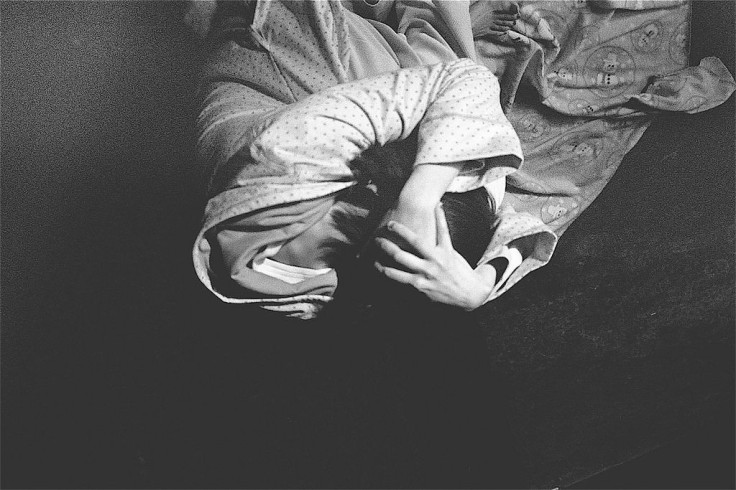Gerascophobia, Fear Of Aging, Caused Teen To Struggle With Anorexia And Talk Like A Baby Well Into His Pre-Teen Years

One of the most extreme coping tactics employed by individuals who experience childhood trauma is to psychologically remain “forever young.” These individuals will go to great lengths to make their adult life mirror the safety and security of childhood. For the most part, their behavior is harmless, but one Mexican teen’s obsession with remaining not only young in spirit but also in body became a serious health risk.
A 14-year-old boy in Mexico has become the youngest person to be diagnosed with gerascophobia — a “phobia of aging.” This condition is one of many rare phobias, and has only been diagnosed twice before, and both times in adults, LiveScience reported. One of the most troubling symptoms of the boy’s phobia is his fear of physical growth. In the past, after learning that food contributed to body growth, the boy had been observed to restrict his diet so much that at age 11 he lost a total of 26 pounds. He slouched in an effort to appear smaller and adopted a falsetto vocal pitch to sound more childlike. The boy also appeared to be particularly preoccupied with putting off his sexual maturity and has been found searching the Internet to learn how to not ejaculate.
“Every time he notices a physical change that indicates that he is growing, he feels fear and anxiety, to the point that [he] has considered undergoing multiple surgeries to hide it," the researchers wrote in their study, published last month in the journal Case Reports in Psychiatry.
The teenager’s phobia is believed to be the result of early childhood trauma. The study reads that at age 5, he was diagnosed with separation anxiety, at 6 he was sexually abused by a neighbor, and in grade school he was subjected to near daily bullying by his peers.
This association with childhood trauma and the compulsion to childish behaviors later in life is not an isolated occurrence. In TLC’s reality show “ My Crazy Obsession—A Real Life Adult Baby,” we hear from Stanley, who believes that his obsessive compulsion to spend up to eight hours a day role-playing as a baby stems from early childhood trauma.
“It’s a feeling of being safe, something I didn’t have growing up. There was child abuse going on at the time and being an adult baby became my way of coping with the world and my own problems,” Stanley explained on the show.
Unlike Stanley’s obsession with acting like a baby, it seems that the Mexican teen’s childlike behavior takes roots in a genuine fear of aging.
"He also believes that once he reaches [adulthood], he is more likely to get sick and die, all of which are very overwhelming," the report read.
Of course, not every individual who experiences a traumatic childhood will go on to adopt infantile characteristics. Researchers believe there are other underlying psychological issues which have contributed to the teen’s gerascophobia.
He has since received family therapy, psychotherapy, and has been prescribed antidepressants — all of which have been reported to drastically improve his state. The teen has gained weight, now stands upright, and has even begun speaking in his natural tone of voice.
“He is able to imagine the future, living on his own and working as an actor, and this is an idea he likes; however, he continues to express a fear of commitment and responsibilities that he feels will be required of him in adult life," the researchers added.
Source: L Perales-Blum, Juarez-Trevino M, Escobedo-Belloc D. Severe growing-up phobia, a condition explained in a 14-year-old boy. Case Reports in Psychiatry. 2014.



























